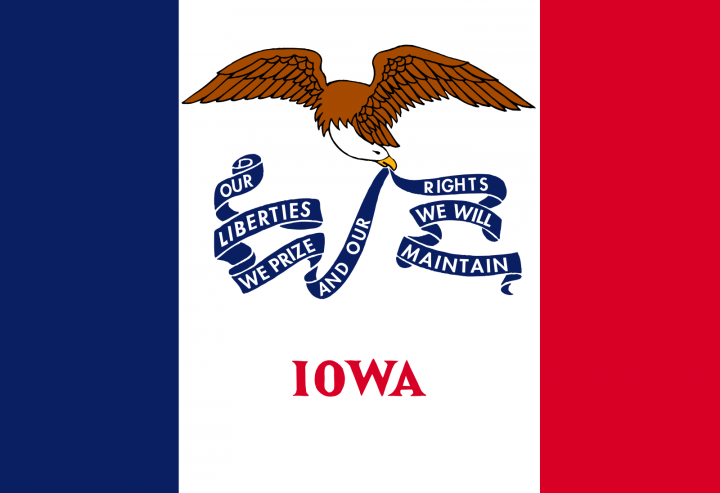How to Become an Ordained Minister in Iowa
The first step to officiate a wedding is to become ordained with the Universal Life Church. Anyone willing can become a legal minister of the ULC, one of the world's largest religious organizations. Online ordination is free and takes about 1 minute to complete. We recommend that you obtain an Ordination Credential showing your valid ordination record. To become a minister, start by clicking the button below!
Video Walkthrough: Performing a Wedding in Iowa
And that's a wrap! Now you're all set to officiate an Iowa wedding! We get it – that was a lot of text to absorb. Did you know we have a full video series on how to get ordained to officiate a wedding in each state? Check out the video guide for performing a wedding in Iowa below!
How to Officiate a Wedding in Iowa
While ministerial registration is not required to perform marriages in Iowa, we recommend that you still double check by contacting any Registrar or Recorder's Office. Introduce yourself as a minister officiating a wedding and ask them what documents they will need from you. There is a chance that they may ask to see proof of your ordination. Any materials or documents you might need are available in the Church Supplies section of our website.
Select your county to view contact information for each office:
Officiant Requirements in Iowa

The Iowa state flower, the Prairie Rose
If you need proof of your ordination, all you need to do is log in to your ULC account and order the materials from our online catalog. The Classic Wedding Kit is the best choice if you are solemnizing your first marriage. Be sure you have left a sufficient amount of time to order and receive your documents before the date of the ceremony. The couple may also want to view proof of your ordination.
How to Get an Iowa Marriage License
We encourage you as a ULC minister to familiarize yourself with the state laws regarding marriage licenses, particularly if you will perform more than one wedding in Iowa. For example, only the couple can pick up the license. It does not matter where within the state the wedding will take place, a license can be obtained from any county of Iowa. For example, the couple could obtain a Cedar Rapids marriage license in Linn County but then have the wedding in Clay County. The marriage license does not expire, but there is a mandatory 3-day waiting period between when the couple applies for it and when the ceremony can be legally performed. After the wedding, the officiant has 15 days to submit it back to the office that issued the license.
How to Perform a Wedding
Congratulations! You're all set to officiate a wedding. If you could use a little guidance on the officiating process, the resources below are here to support you. Created specifically for ULC ministers, they’re full of useful tips, ideas, and inspiration for every stage of the ceremony. Whether you're celebrating a loved one’s big day or exploring a new path, these tools will help you deliver a ceremony that’s heartfelt and unforgettable. (Bonus: many ULC ministers got their start with these same resources!)
Finalizing the Marriage
After you perform the ceremony, you will sign the marriage license along with the couple and their two witnesses. Your title is 'minister', the ceremony type is 'religious', and the denomination is 'non-denominational'. You will not be required to provide a license number. You may also wish to give the couple a commemorative gift, like a marriage certificate to mark their special day. Last thing: make sure the signed license gets resubmitted to the marriage office before the deadline!
Iowa Marriage Laws
Marriage laws in Iowa are primarily directed by Chapter 595 of Title 15 of the state code. This section defines persons authorized to perform a marriage in the State of Iowa, which includes ordained ministers of the Universal Life Church, among other individuals. We've reproduced the relevant portion below:
595.10 Who may solemnize. Marriages may be solemnized by: 1. A judge of the supreme court, court of appeals, or district court, including a district associate judge, associate juvenile judge, or a judicial magistrate, and including a senior judge as defined in section 602.9202, subsection 3. 2. A person ordained or designated as a leader of the person's religious faith. [C51, §1472; R60, §2524; C73, §2193; C97, §3145; C24, 27, 31, 35, 39, §10436; C4
View the Iowa Statutes on the official government state website.
How Do you Legally Perform a Wedding in Iowa?
See the IA Marriage CodeAre you Interested in Being an Ordained Minister in Iowa?
Learn About IA OrdinationBecome an Ordained Minister Today
Be Ordained Now